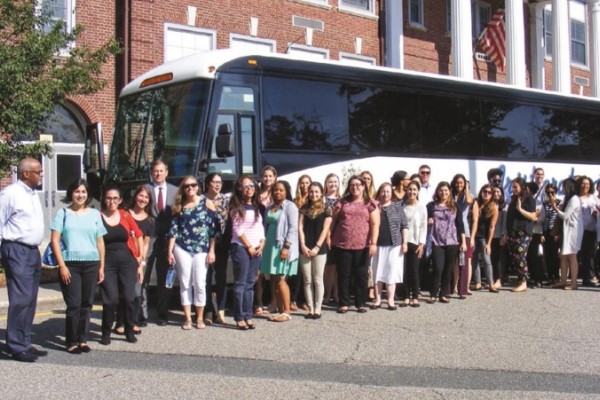School Discipline: Dismantle the Pre-K to Prison Pipeline
February 05, 2021
Effective school discipline, positive school climate and eliminating racial bias are critical factors in ensuring quality and excellence for students.
Suspensions and expulsions often disengage and disconnect students from school, feed students into juvenile system and criminalize children at increasingly younger ages: instigating a Cradle to Prison Pipeline.
Harsh and punitive policies, including zero tolerance and the overuse of suspension and expulsion, can devastate the lives of children. AASA is committed to educational equity and reform to ensure the highest quality education for all students.
As superintendents and principals work to improve school climate and enhance the learning environment for students, addressing school discipline policies and practices are critical levers for meaningful change.
Dan Domenech, Former AASA Executive Director
Measures can and should be taken to build positive school climates, respond to special circumstances of students, prevent student misbehavior and address violations of school rules in a restorative manner.
School and district leaders have shown that positive discipline strategies can be effective in advancing the district’s responsibility to keep all people safe, ensure students are learning and treat everyone fairly.
AASA works with school system leaders to examine racial disproportionality, bias and the potentially harmful effects of school discipline, especially on students of color.
Positive Behavioral Interventions and Supports (PBIS)
PBIS is a multi-tiered, evidence-based model that seeks to support and enhance both academic and behavioral outcomes for all students.
PBIS is not a packaged curriculum, but a framework rooted in a positive discipline philosophy that celebrates students for appropriate behaviors. Rather than waiting for students to misbehave and punishing them, PBIS uses a proactive approach to teach and model appropriate behaviors, and reinforce positive expectations for behavior through affirmations and rewards. This prevention approach has been adopted by many schools and school districts across the nation as a method to improve disciplinary outcomes and school climate.
Learn More
Restorative Justice Practices in Schools
Schools and school districts around the country are turning to restorative justice practices as an alternative to harsh exclusionary discipline practices. Restorative justice is a philosophy, rather than a specific program or curriculum, which focuses on repairing the harm done when a member of a community violates the standards of conduct.
Restorative practices include a variety of methods used to uphold the philosophy. In many cases, educators use restorative practices not only when harm is done, but also as a preventive tool to help members of the school community build healthy and positive relationships and address needs and challenges as they arise.
Learn More
AASA and the Children’s Defense Fund partnered to survey 500 school superintendents to determine the state of district-wide school discipline policies and practices. It examined:
- How and why districts use out-of-school suspension
- The revision and parameters of districts' discipline policies
- Outside partners districts seek in improving school discipline
- Efforts underway to create positive school climates to reduce discipline disparities
Discipline Reform for Equity
These case studies highlight school districts that were part of leading the charge to improve discipline policy and practice, reduce racial disproportionality, and improve school climate.
- Reforming Discipline in Broward County Public Schools: Changing the Process and Changing the Outcomes
- Reforming Discipline in Denver Public Schools: Three-Pronged Approach for Equity & Justice
- Reforming Discipline in Madison Metropolitan School District: Improving the Process to Improve the Outcomes
- Reforming Discipline in Oklahoma City Public Schools: Changing the Mindset and Changing the Outcomes
Resources & Support
- Framework for Revising School District Codes of Student Conduct
- Six Tips for Communicating Changes to Codes of Conduct
- Funding School Climate and School Discipline Reform
- Positive Behavioral Interventions and Supports (PBIS) Resource Guide
- Restorative Justice Practices Resource Guide
- In School Suspension Best Practices
- School Discipline Organizations and Resources
Videos
Susan Enfield, superintendent, says suspension should be a last resort.
Thomas Tucker, superintendent, discusses how critical it is for school districts to hire a diverse workforce.
Lolli Haws, superintendent, talks about how school discipline is part of a much larger issue.
Sybil Knight-Burney, superintendent, discuss the importance of working with other superintendents on this critical issue.
Alan Johnson, superintendent, says we're at risk of "losing a generation of students."
Advertisement
Advertisement
Advertisement
Advertisement



